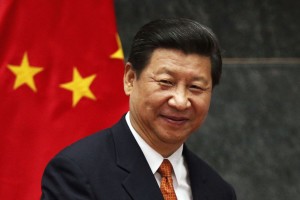
China’s Foreign Ministry on Wednesday warned Washington against challenging its sovereignty, responding to reports the United States was planning fresh naval patrols in the disputed South China Sea.
On Sunday, the Navy Times reported that U.S. Navy and Pacific Command leaders were considering freedom of navigation patrols in the busy waterway by the San Diego-based Carl Vinson carrier strike group, citing unnamed defense officials.
Chinese Foreign Ministry spokesman Geng Shuang said tension in the South China Sea had stabilized due to the hard work between China and Southeast Asia countries, and urged foreign nations including the U.S. to respect this.
“We urge the U.S. not to take any actions that challenge China’s sovereignty and security,” Geng told a regular news briefing on Wednesday.
The United States last conducted a freedom of navigation operation in the area in October, when it sailed the guided-missile destroyer USS Decatur near the Paracel Islands and within waters claimed by China.
Dave Bennett, a spokesman for Carrier Strike Group One, said it did not discuss future operations of its units.
“The Carl Vinson Strike Group is on a regularly scheduled Western Pacific deployment as part of the U.S. Pacific Fleet-led initiative to extend the command and control functions of the U.S. 3rd Fleet,” he said.
“U.S. Navy aircraft carrier strike groups have patrolled the Indo-Asia-Pacific regularly and routinely for more than 70 years,” he said.
China lays claim to almost all of the resource-rich South China Sea, through which about $5 trillion worth of trade passes each year.
Brunei, Malaysia, the Philippines, Taiwan and Vietnam also claim parts of the waters that command strategic sea lanes and have rich fishing grounds, along with oil and gas deposits.
The United States has criticized Beijing’s construction of man-made islands and build-up of military facilities in the sea, and expressed concern they could be used to restrict free movement.
